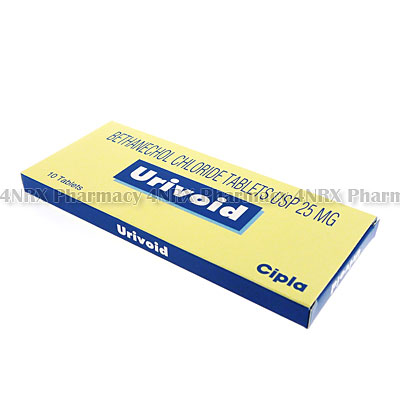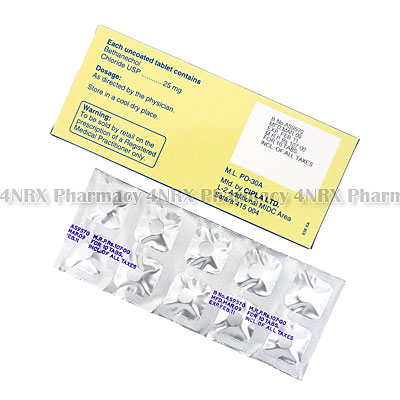 |
Home  General Health General Health  Urivoid (Bethanechol Chloride) Urivoid (Bethanechol Chloride) |
|
|||||||||
|
|
Urivoid (Bethanechol Chloride)
What is Urivoid (Bethanechol Chloride) used for? Urivoid (Bethanechol Chloride) is prescribed to treat patients who are suffering from urinary retention. The medication improves the constriction of muscles in the bladder to allow easier urination and its ability to completely empty. It may also be effective for treating heartburn by speeding up the process of the stomach emptying its contents into the intestines to prevent acid from moving back into the oesophagus. Your doctor may prescribe its use for the treatment of other unlisted conditions, as well. How should I use Urivoid (Bethanechol Chloride)? Urivoid (Bethanechol Chloride) should always be used according to your doctor`s instructions to get the best results from treatment. Most patients are prescribed one tablet to be taken three to four times each day, but your particular instructions will depend on your age, weight, current health, the condition being treated, and the severity of your symptoms. These should be swallowed with a large glass of water on an empty stomach. It is suggested to take the medication one hour before a meal or two hours following a meal to make sure the stomach is empty. Never change the form of the tablets by splitting or crushing them as this may destroy or alter the effects of their contents. What are the side effects of Urivoid (Bethanechol Chloride)? The use of Urivoid (Bethanechol Chloride) may cause side effects in some patients including:
Stop using the medicine and contact your doctor immediately if you experience any serious side effects being especially cautious about signs of an allergic reaction such as severe rashes, hives, swelling, or difficulty breathing. These conditions may require lower doses, reduced frequency of administration, or emergency medical attention in serious cases to prevent further health problems from occurring. Please Note Do not use Urivoid (Bethanechol Chloride) if you have had a recent heart attack, allergies to bethanechol, a bad reaction to similar treatments, an intestinal obstruction, an obstruction of the urethra, or recent surgery to rejoin the intestine after removing a section. Also disclose to your doctor if the patient is elderly or a child as reduced dosages or other adjustments may need to be made to your treatment to prevent these from occurring. Strictly use this medication as prescribed and follow all instructions provided by your doctor. Safe, suitable, and optimum dosage can vary and is dependent on the patient`s health and medical history, as well as the condition you are treating. Urivoid (Bethanechol Chloride) may not be safe or suitable for all patients. Always ensure your doctor is informed if you are pregnant or breastfeeding, using any other type of medication (including non-prescription medicine, vitamins, and supplements), as well as if you have any allergies, other illnesses, or pre-existing medication conditions. Seek immediate medical attention or proceed to your nearest accident and emergency department if you suffer a hypersensitive or allergic reaction. Symptoms usually present during a reaction of this nature include difficulty breathing or swallowing, swelling of the limbs or face, tight chest, hives, and skin rashes. 


|
||||||||||||||||||